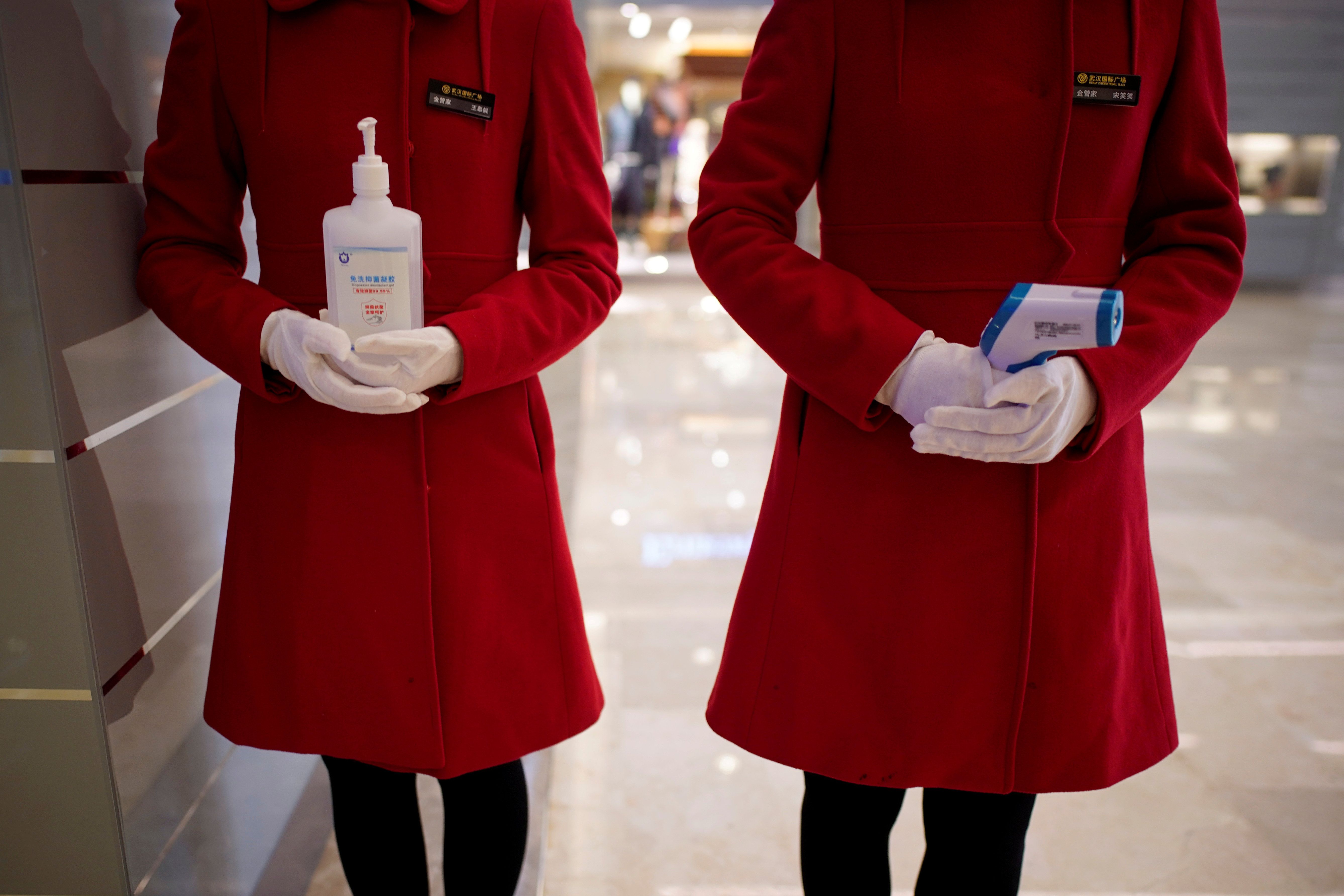March 30, 2020
As the coronavirus continues to ravage the world, all eyes now turn to the place where it all started. For more than two months, the 11 million residents of Wuhan, the Chinese industrial hub where the novel coronavirus was first detected, have lived under near complete lockdown.
Now, as China reports a dwindling number of new cases, the city's people are slowly emerging back into the daylight. Some travel restrictions remain, but public transportation is largely functioning again, and increasing numbers of people are cautiously – with masks and gloves and digital "health codes" on their phones that permit them to move about – going back to work.
The rest of the world, where most hard-hit countries have imposed various forms of lockdown of their own, is now keenly watching what happens in Wuhan for a glimpse of what might lie in store for the rest of us.
Some key questions:
First, will there be a second wave of cases in Wuhan? Almost inevitably, yes. The key questions are how big a wave and whether hospitals are now better prepared. A recent study published in The Lancet, a respected medical journal, suggests that lifting the Wuhan lockdown now will produce a second wave by August, while leaving it in place until the end of April would push that off until October, allowing more time for prep.
Second, how will the Chinese government respond to this second wave? Following intense international criticism of its mismanagement of the first outbreak, Beijing is now determined to project an image of competence and experience in dealing with COVID-19, as the disease's epicenters have shifted to Europe and the US.
But if many more people than expected are infected in the coming weeks, will the Chinese government be honest about what's happening? There are already reasons to question the Chinese government's official statistics. Also, this recent report on the number of ash urns recently stacked at Wuhan funeral homes is an eye-opener. China has officially reported about 2,500 deaths, but some unconfirmed estimates put the true death toll in the tens of thousands.
The world is now in an extraordinary and precarious situation.In a global public health crisis where transparency is critical in order to craft effective responses, we now wait for essential information from a government that has strong incentives – both domestically and internationally – to again keep damaging information secret.
More For You
Walmart is investing $350 billion in US manufacturing. Over two-thirds of the products Walmart buys are made, grown, or assembled in America, like healthy dried fruit from The Ugly Co. The sustainable fruit is sourced directly from fourth-generation farmers in Farmersville, California, and delivered to your neighborhood Walmart shelves. Discover how Walmart's investment is supporting communities and fueling jobs across the nation.
Most Popular
- YouTube
President Trump’s second term has rapidly reshaped global politics, with the US wielding power more aggressively, targeting weaker countries and even allies, Stephen Walt explains on GZERO World.
- YouTube
Ian Bremmer breaks down a sudden and serious transatlantic crisis: President Trump’s insistence that the United States must have sovereignty over Greenland.
- YouTube
It’s been a year since President Trump returned to office. How has the world changed? Stephen Walt joins Ian Bremmer on GZERO World.
© 2025 GZERO Media. All Rights Reserved | A Eurasia Group media company.
